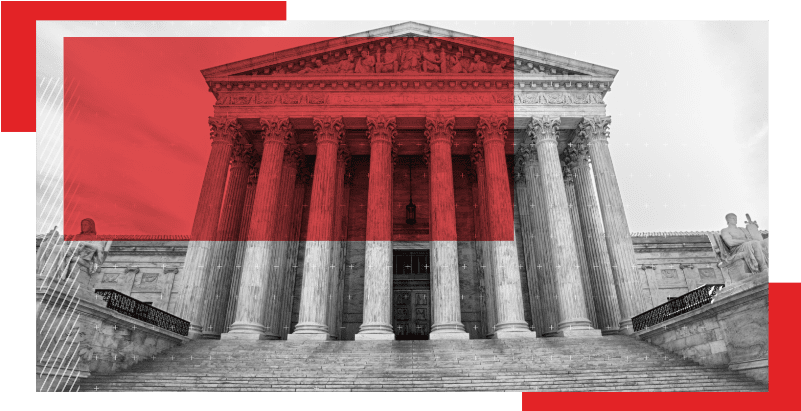
Here’s what we have in store:
– That’s Debatable: Should the Senate Fill the Vacant Supreme Court Seat?
– Intelligraphic: Sizing Up the Bench
– Double Digits: 2%
– Points of View: Insights and analysis from past debaters
Sign up hereto find us in your inbox each week and if you like what you read, consider sharing our newsletter with a friend here. You can always reach us at info@opentodebate.org with ideas and feedback.
THAT’S DEBATABLE
Two perspectives on one of the nation’s biggest debates this week.
Should the Senate Fill the Supreme Court Vacancy?
– Time | David FrenchAgainst:Confirm Trump’s Supreme Court Nominee—Don’t Give In to Threats, Senators
INTELLIGRAPHIC
How many justices sit on the Supreme Court? Since 1869, the number has stayed steady at nine. But before that, Congress often changed the size of the court for its own political aims. Should lawmakers consider expanding the bench once again?
DOUBLE DIGITS
When one number tells two stories.
2%
The percent of federal criminal defendants who go to trial.
POINTS OF VIEW
Top insights and news from the intellectual leaders
who have battled it out on the Open to Debate stage.
– Paul Butler argues that the FOP, the nation’s largest police organization, should be relegated to the dustbin of history. [Read more via the Nation]
– Jason Johnson says that police critics and supporters can find common ground on at least one thing: the police have too many duties. [Read more via USA Today]
– Rafael Mangual writes that reducing the police presence in New York City is making citizens less safe.[Read more via NY Post]
– Sherrif Sue Rahr seeks to reimagine the way police do their jobs. [Read more via Time]
– Vikrant Reddy weighs in on America’s shifting attitudes toward zero-tolerance policing. [Read more via NPR]















